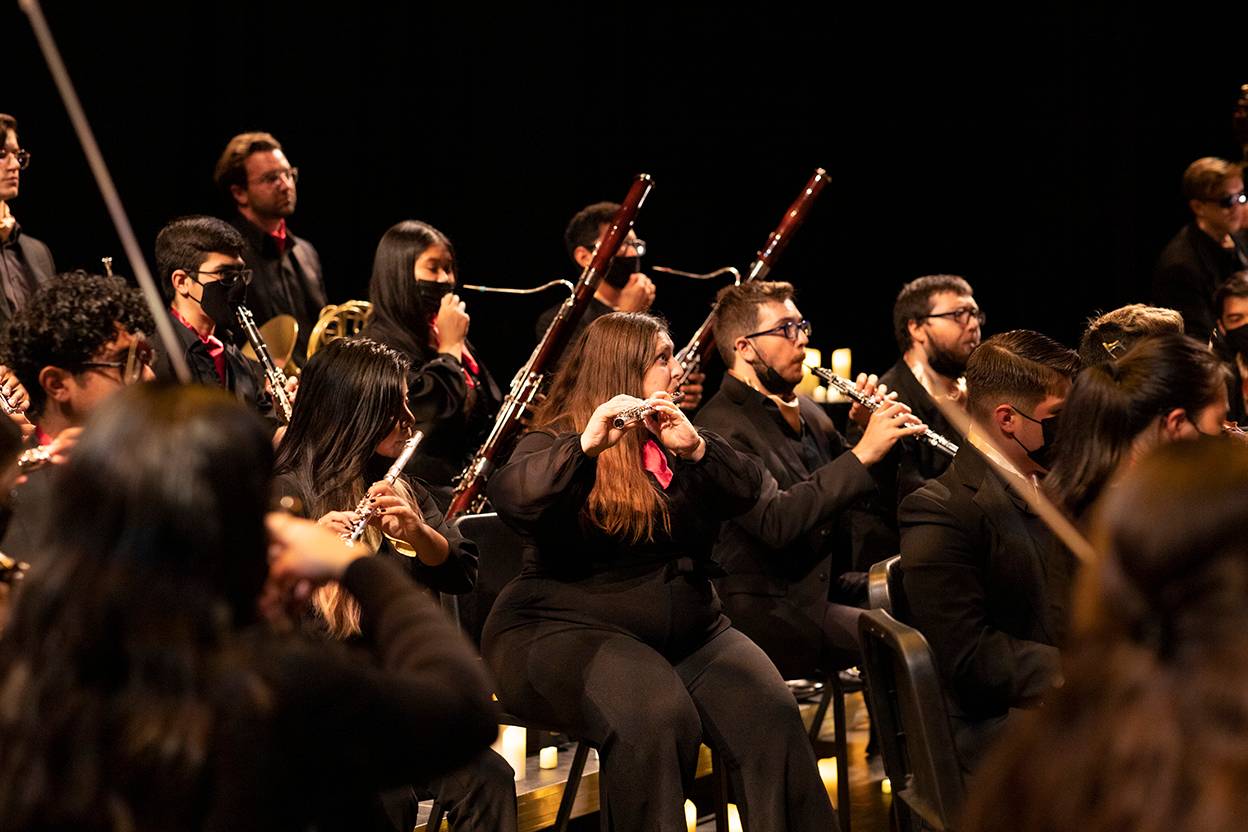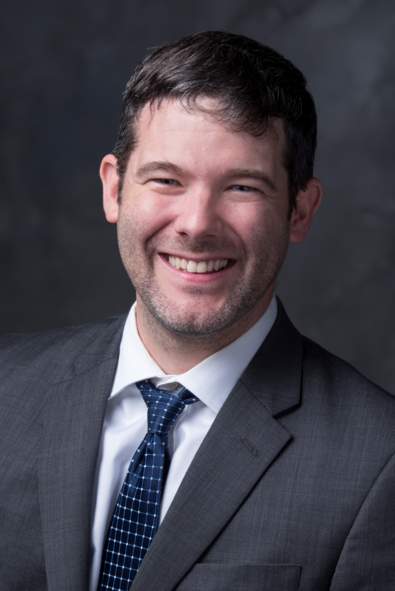Matt Joyce | March 30, 2023

As a new class of graduates prepares to enter the post-pandemic workforce, Texas State University Music Education majors are in high demand across the state in elementary school classrooms and in secondary school band, orchestra, and choir programs.

Dr. John Denis, coordinator of Music Education in the School of Music, said the program maintained steady enrollment through the pandemic, a time when most schools saw their student numbers drop due to the face-to-face nature of music performance and instruction. Meanwhile, Denis says, the program has also worked to foster a broader view of music education — embracing students’ interest in country, mariachi, and hip-hop music, for example — to stay relevant and meet diverse interests in music classrooms statewide.
“I often get phone calls or emails from schools asking, ‘Can we get a student teacher in the fall? We want a Texas State student because they’re the best prepared in the state,’” says Denis, who last year published a new textbook, Program Notes: A Comprehensive Guide to Band Directing. “Our students have had quite a bit of success, so schools are seeking us out.”
The Music Education program accounts for 56% of School of Music enrollment and graduates about 45 students per year, Denis says, making it one of the state’s top producers of music teachers. Texas State graduates are active as teachers primarily along the I-35 Corridor from the Rio Grande Valley to Dallas-Fort Worth, as well as in the Houston area.
“Historically Texas State has not only graduated well-trained and competent teachers but in larger numbers compared to most universities in the state,” says Robert Floyd, executive director of the Austin-based Texas Music Educators Association. “This is critical at a time when we have lost so many teachers throughout and after the pandemic. Having been executive director of TMEA for 30 years, I’ve seen that a commitment to a strong and robust Music Education program has always been a priority at Texas State.”

Geneva Le, a Music Education student graduating this May, transferred to Texas State three years ago specifically for the Music Education program. This semester, she’s student-teaching at Kealing Middle School in Austin and keeping an eye on job boards with the goal of becoming an assistant band director at a middle school.
“I think music education lies on a spectrum where on one end there’s people who think we need to teach music to keep music alive as an art form and on the other side are people who teach music because they believe it’s great tool to make young people better people,” Le says. “I think Texas State really pays attention to both sides of that spectrum.”
Denis says the school adapted its approach during the pandemic to maintain a high standard of instruction. For example, Music Education students must take “technique classes” to learn how to teach instruments they don’t personally play: A saxophone player needs to be able to teach flute, percussion, violin, etc.
Such courses are among the most crucial for music teachers when they enter the workforce, Denis says. To continue teaching technique classes, faculty members held classes outdoors in parking garages and parking lots, spacing the students apart from one other. Instructors wore masks and face shields and approached students individually to give them feedback.
“We were doing all of that so that our students would be successful in learning what they need to learn,” Denis says. “Teaching is a hard profession, and there are valid reasons why 50% of teachers quit in the first three to five years. I’m proud to say that we can measure our alumni who quit in single digits, not even percentages. We spend time really making sure they know, ‘Here’s how you’re going to have to handle these challenging situations.’”
Along with preparing students for the rigors of teaching music professionally, Denis says, the biggest challenge facing the field of music education is diversifying musical genres. Texas State recently introduced a country-western ensemble, led by Dr. Jordan Christopher Stern. Within the School of Music, Latin Music Studies organizes both mariachi and salsa ensembles and offers a mariachi music education degree.
“Mariachi is very popular among certain communities in Texas, and it’s being taught in schools, and so we’re helping students be aware of that,” Denis says. “This type of music may appeal to a different kid than band will. We get very locked into classical music, but expanding our sphere to a much wider range of music will engage a much larger number of students.”
As she finishes up her degree, Le says she’s excited about the prospect of working with middle-schoolers because of the pedagogical and emotional aspects of teaching beginners. The students are getting their first exposure to the communal and social aspects of making music.
“Music allows people to participate in this expressive form of communication that not only helps them get better at the literal technique of playing music, but how to communicate with one another and how to interpret art, how to understand the human experience through non-verbal means,” she says. “That’s a skill that’s essential in any walk of life.”
Share this article
For more information, contact University Communications:Jayme Blaschke, 512-245-2555 Sandy Pantlik, 512-245-2922 |
